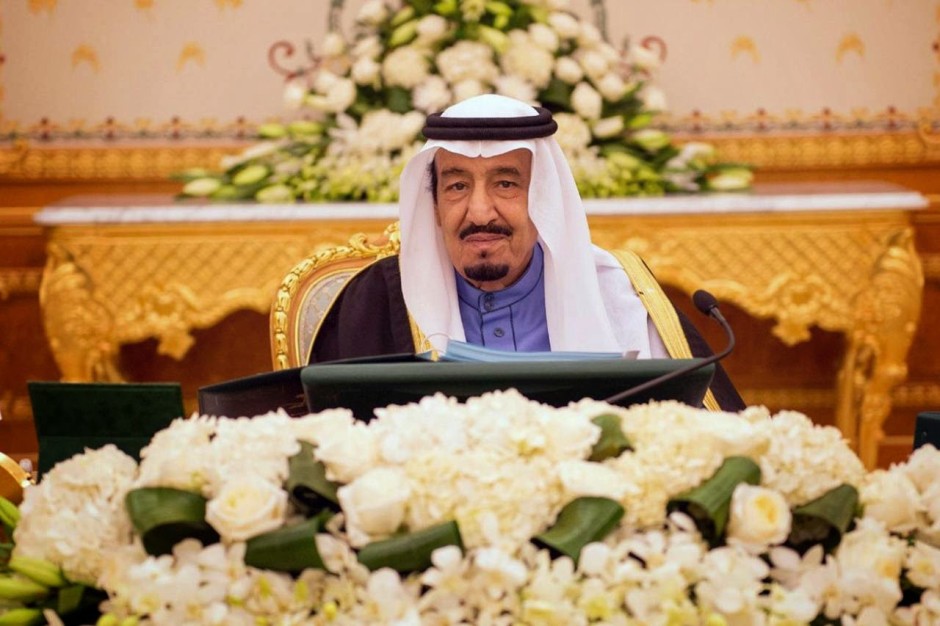In the early 1980s, Israel lodged vigorous protests with West Germany over its plan to sell state-of-the-art Leopard tanks to Saudi Arabia, claiming the sale would threaten its security.
But in 2011, when unified Germany announced its intention to sell the Saudis 200 Leopards in a deal worth $2.5 billion, Israel did not object, calling the Saudi government a “guarantor of stability” in the Middle East.

Israel’s startling about-face speaks to shifting realities in the region.
More than three decades ago, Israel considered Saudi Arabia — the cradle of Islam and an ardent supporter of the Palestinians — an enemy to be combated. But in recent years, Israel has come to regard Saudi Arabia as a possible ally. As Israeli Prime Minister Benjamin Netanyahu has said, “We have common interests with Saudi Arabia.”
On the face of it, Netanyahu’s comment seems overstated.
Saudi Arabia does not recognize Israel’s existence and questions its legitimacy. Saudi Arabia, its traditional and inward-looking society moulded by the austere Wahhabi variant of Islam, is probably the most conservative and undemocratic state in the Arab world. School textbooks have described Jews and Christians in unflattering terms. Jewish tourists have been refused entry visas.
But as a result of recent developments in the region, top-level Israeli officials think there may be room for a measure of mutual cooperation.
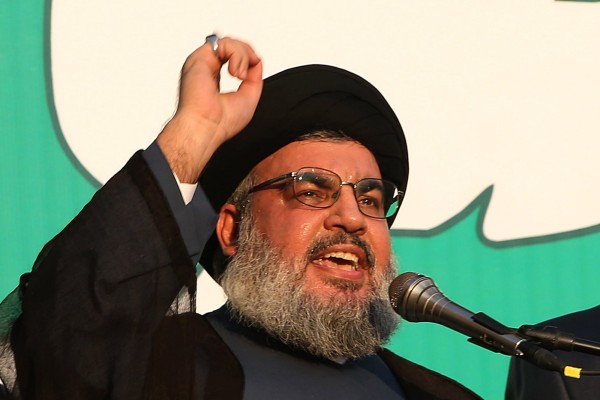
The notion that Israel and Saudi Arabia may be cooperating to fend off common threats bothers Hassan Nasrallah, the leader of Hezbollah, to no end. “The Zionist entity is taking advantage of the events taking place in our region in a bid to normalize ties with several Arab states,” he warned on July 28.
As Nasrallah suggests, Israel and Saudi Arabia are animated by identical fears. Both countries regard Iran’s nuclear program with a sense of dread. Nor do they like the nuclear agreement Iran signed with the six major powers in mid-July. While King Salman of Saudi Arabia has expressed misgivings about the accord, Netanyahu has described it as a “bad deal” and a “historic mistake.”
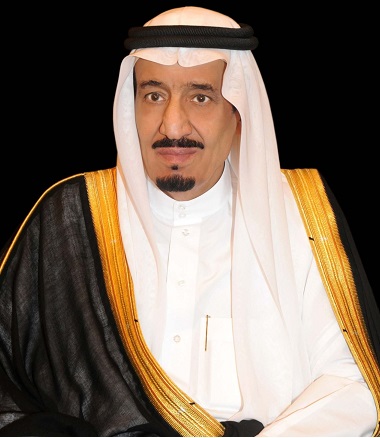
Iran’s growing regional influence, particularly in Syria, Yemen, Iraq and Lebanon, is strongly opposed by Israel and Saudi Arabia. In Yemen, Saudi aircraft have bombed Iranian-backed Houthi rebels in a bid to restore the deposed Yemeni government.
The rise of Islamic State, a Sunni organization dedicated to the establishment of a caliphate throughout the Middle East, causes apprehension in Riyadh and Jerusalem as well.
These flashpoints are dangerous enough, but when they blend with the ancient rivalry pitting Sunni Islam against Shiite Islam, as respectively represented by Saudi Arabia and Iran, alarm bells go off.
Cognizant of the changing political landscape in the Middle East, Netanyahu has argued that the converging security interests of Israel and Sunni Arab states like Saudi Arabia and Jordan could well coalesce into a tacit alliance to counter Iran and Islamic State. “Our best allies these days are some of our Arab neighbors, because they know we face a common threat,” he said this past March.
Alluding to this in a recent presentation to the Conference of Presidents of Major American Jewish Organizations, the director-general of Israel’s Foreign Ministry, Dore Gold, called Sunni Arab nations “Israel’s allies.”
Strange talk from the author of Hatred’s Kingdom: How Saudi Arabia Supports the New Global Terrorism, a book published in 2003.
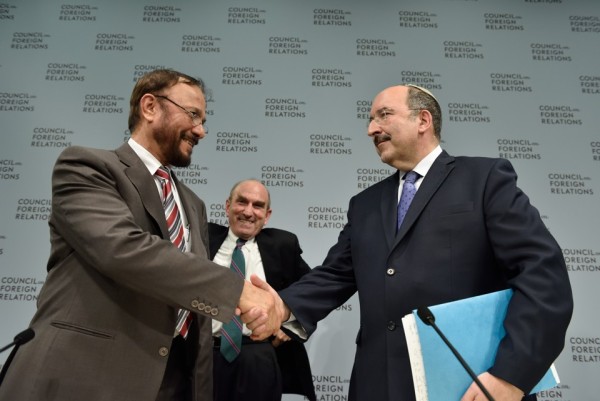
In yet a more astonishing development, Gold shared a platform and shook hands with retired Saudi general Anwar Eshki at a conference in Washington, D.C. sponsored by the Council on Foreign Relations. Interestingly enough, they agreed that Iran is the chief threat to regional stability today.
Neither Eshki nor Gold were at the conference as official representatives of their nations. Gold was there in his capacity as head of the Jerusalem Center for Public Affairs, only days away from being confirmed in his new job. As for Eshki, he was formerly an advisor to the Saudi government.
Their joint appearance at the conference fed into reports that Israeli and Saudi representatives have held five clandestine meetings in Italy, India and the Czech Republic in the past 17 months to discuss the Iranian issue.
In 2009, The Sunday Times, published in London, reported that Saudi Arabia had agreed to allow Israeli aircraft to use its airspace to bomb nuclear sites in Iran. The Times claimed that Meir Dagan, the then director of the Mossad, had conferred with the Saudis over this issue.
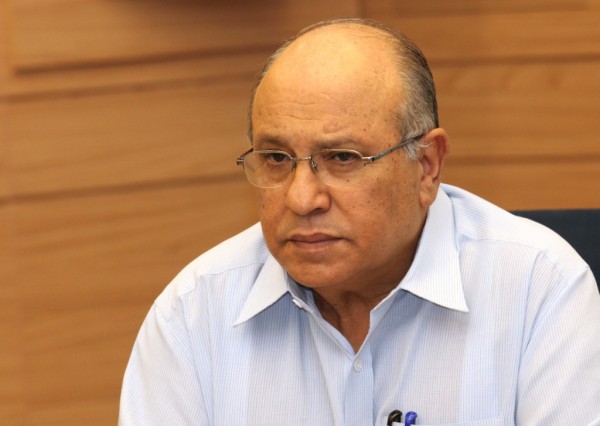
John Bolton, the former American ambassador to the United Nations, said it would be “entirely logical” for Israeli jets to fly over Saudi territory en route to bombing nuclear facilities in Iran.
It was also reported, by The New York Times, that Ehud Olmert, the then Israeli prime minister, had met a senior Saudi official to discuss Iran and Israel’s peace process with the Palestinians.
The convergence of Israeli and Saudi interests was addressed by Saudi academic Abdullah al Shammari in The Wall Street Journal recently. “Israel is an enemy because of its origins, but isn’t an enemy because of its actions,” he said. “Iran is an enemy because of its actions, not because of its origins. This means that Iran is more of a threat. If I were a Saudi decision-maker, I would not hesitate for a second to coordinate with Israel against Iran’s nuclear program.”
Overt cooperation between Israel and Saudi Arabia cannot occur without progress on the Palestinian front, argues Joshua Teitelbaum of the Begin-Sadat Center for Strategic Studies at Bar-Ilan University.
Concurring with this argument, Anwar Eshki has said that no cooperation will be possible unless Israel accepts the Arab peace initiative, of which Saudi Arabia was a prime sponsor.
First announced by the Arab League at its summit in 2002 and since reissued, the plan calls for an Israeli withdrawal to the pre-1967 lines, the creation of a Palestinian state in the West Bank and the Gaza Strip and a “just and agreed” solution to the Palestinian refugee problem. In return, 57 Arab and Muslim states would formally recognize Israel and establish diplomatic relations with it.
Israel has never fully embraced the proposal, but three months ago, Netanyahu said he welcomed the concept of a regional agreement between Israel and moderate Arab states. “There are positive aspects and negative aspects to it,” he said. “But the general idea — to try to reach understandings with leading Arab countries — is a good idea.”

Israeli Vice Premier Silvan Shalom, who’s responsible for peace talks with the Palestinians, rejected the Arab League peace plan on July 10, saying Israel will not withdraw to the pre-1967 borders.
Due to Israel’s basic rejection of the plan, the Saudis are keeping their distance from Israel.
According to the London-based Arab newspaper Rai al-Youm, Saudi Arabia turned down an opportunity to buy Israel’s Iron Dome rocket defence system, despite the fact that Saudi towns near the border with Yemen have been bombarded by Houthi rebels.
More recently, Saudi Arabia’s flagship airline severed a contract with a Portuguese aircraft leasing company when social media reported that a Saudi jumbo jet had been sent to Tel Aviv for maintenance.
In light of these circumstances, Saudi Arabia is unlikely to forge a rapprochement with Israel, be it official or unofficial. The two countries have a shared interest in containing Iran’s regional ambitions and combating Islamic State aggression. But as long as the Palestinian problem simmers, enraging Arabs from Morocco to Iraq, Israel will not be in a realistic position to normalize relations with Saudi Arabia, much less other Arab states.
